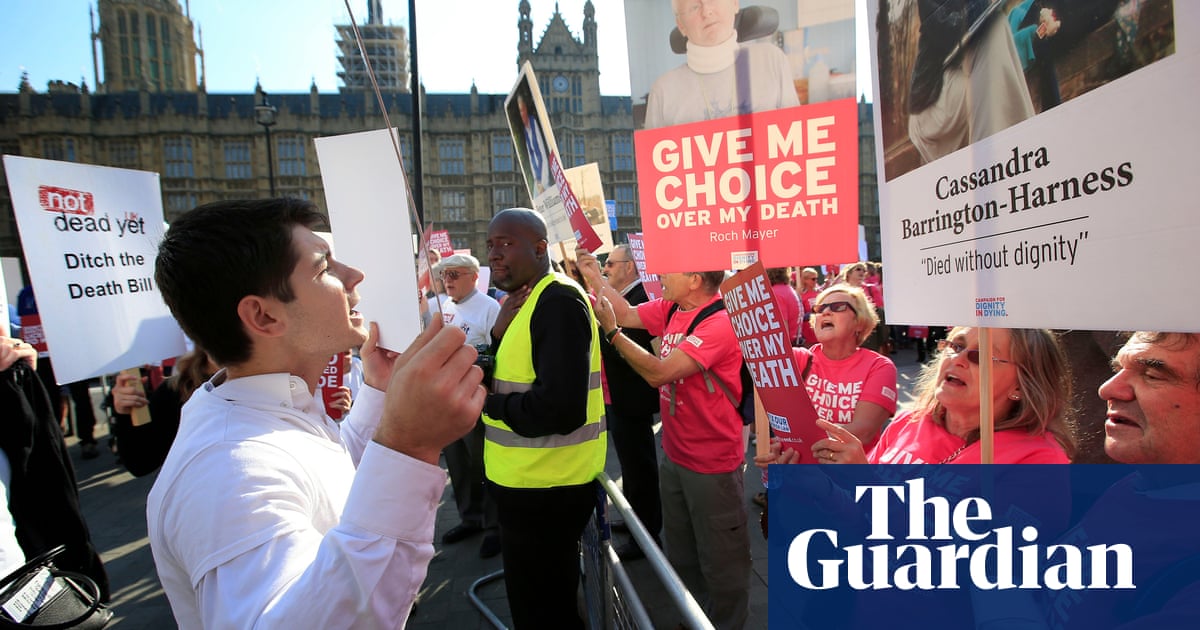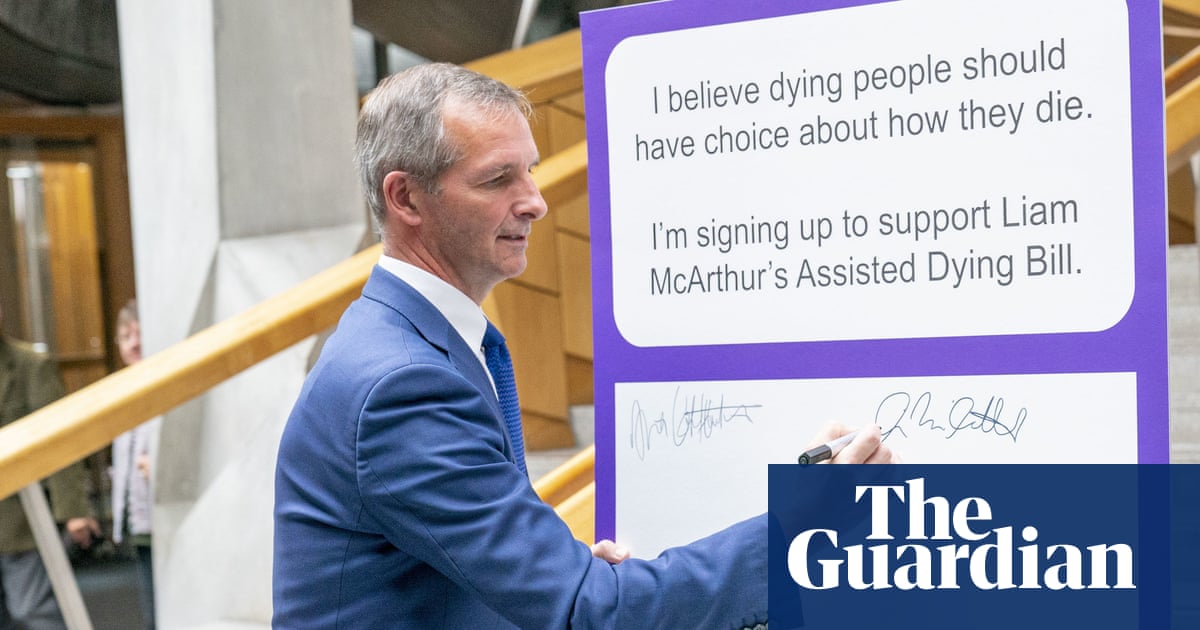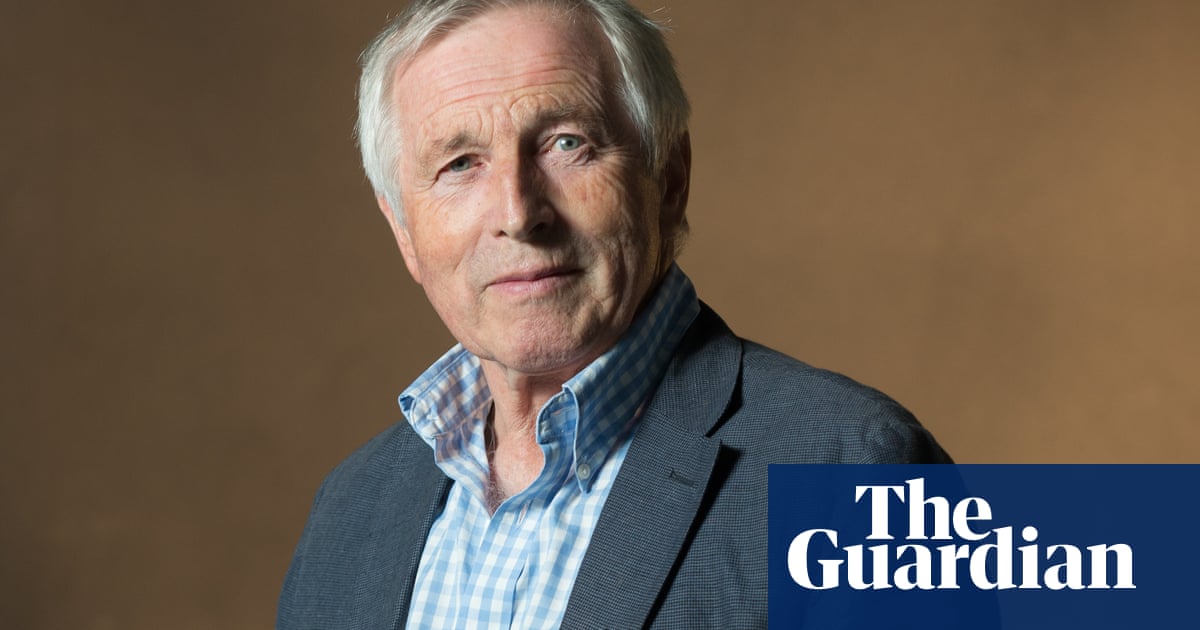
Campaigners for assisted dying claim they are close to gaining majority support for a law change when MPs next vote on the highly sensitive issue, possibly in 2025.
Kit Malthouse, the former Home Office minister, said he had been “working the tea rooms” and “the sentiment in parliament has moved significantly since 2015”, when a vote was last held. On that occasion, a bill to legalise the practice under strict controls was defeated by 330 votes to 118.
“We are getting towards a majority, yes,” said Malthouse, who co-chairs the all-party parliamentary group on choice at the end of life.
This week the TV presenter Esther Rantzen gave fresh impetus to the debate by announcing she had joined the Swiss assisted dying society Dignitas. The former That’s Life host said her cancer had progressed to stage 4 in May.
“If the next scan says nothing’s working, I might buzz off to Zurich – but it puts my family and friends in a difficult position because they would want to go with me,” she told BBC Radio 4’s Today programme. “And that means that the police might prosecute them. So we’ve got to do something. At the moment it’s not really working, is it?”
She called for a free vote on assisted dying as she feels it is “important that the law catches up with what the country wants”.
Campaigners are pinning hopes of a law change on a new cohort of MPs voted in at the next general election. A spokesperson for Dignity in Dying said the election must “break the deadlock” that means terminally ill people cannot access assisted dying in the UK.
“We’ll have a new generation of MPs and what we have seen from public opinion and the way there have been changes around the UK, that’s going to lead to much more support in Westminster than in previous parliaments,” they said.
Senior Labour and Conservatives expressed hesitancy over reform on Tuesday. Michael Gove, the secretary of state for levelling up, housing and communities, said: “I’m not yet persuaded of the case for assisted dying, but I do think that it’s appropriate for the Commons to revisit this.”
Lee Rowley, the housing minister, said he was “personally quite reticent” about changing the law to allow assisted dying and said “human life is very sacred and we should be very careful”.
He told Kay Burley on Sky News: “At the point when it’s looked at by parliament again, we will all have the opportunity to talk. It will be a big discussion and debate that this country has.”
Darren Jones, the shadow chief secretary to the Treasury, declined to offer his personal view, but said: “Clearly there is demand from the public to have this debate and if the people want to have a debate on a subject like this, the House of Commons is there to serve the public and so it should be debated.”
Assisted dying laws are being considered by authorities in Scotland, the Isle of Man and Jersey, meaning some UK citizens could have assisted dying rights by 2025. Public opinion polls consistently show voter support for allowing assisted dying for terminally ill people, subject to strict controls.
The prime minister’s official spokesperson said: “The position of the government has not changed. It is a matter for parliament to decide. It’s an issue of conscience for individual parliamentarians. MPs, I believe, last had the opportunity to vote in 2015, when they rejected making any change in the law. It will be for parliament to decide on any future debate.”
Rantzen’s daughter Rebecca Wilcox said on Tuesday: “I personally would want to ground her plane if she was going to fly to Zurich but I know it’s her decision. I just don’t ever want her to go. And yet, if Mum is experiencing such dreadful symptoms and there is no hope, then why shouldn’t she be able to make that decision?”
Sarah Wootton, the chief executive of Dignity in Dying, said: “Dame Esther is absolutely right that the law needs to catch up with public opinion on assisted dying and that MPs must bring forward this debate as a matter of urgency and end the extreme suffering the current ban inflicts on some dying people and their loved ones. A vote in the House of Commons must be a priority for the next government.”
Alistair Thompson, a spokesperson for Care Not Killing, a group that opposes assisted dying, said everyone who heard Rantzen’s interview would be moved, but he said there was evidence from abroad that some assisted dying deaths were not “quick and painless” and that limits on who qualified had shifted in some places to include people with non-terminal conditions.
He said the focus of attention should be on improving NHS services and palliative care “rather than discussing again this dangerous and ideological policy”.
The Commons health and social care committee is producing a report on assisted dying after a year-long inquiry. It is expected to examine the state of palliative care in detail and weigh the options for changing the law in the UK after hearing from witnesses around the world as well as leading figures for and against assisted dying in the UK.
A spokesperson for the committee said only that the report would be published “in due course” and stressed the large volume of information being processed.












